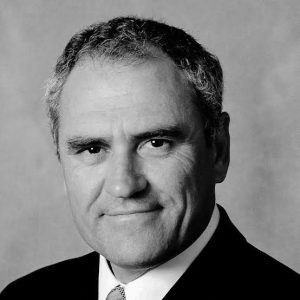
It was an unseasonably balmy night at the Bermagui Hotel. The speaker was Ken Henry and the subject “The Economics of Climate Change”. We’d all been congratulating the Bermagui Institute’s Jack Miller on his orchestration of the China-US emissions reduction deal just in time to create a dramatic backdrop for the talk, when Henry told us, “it won’t make any difference” to Australian government policy on climate change action.
More on that later.
Dr Ken Henry, economist, was Federal Treasury Secretary from 2001 to 2010, the author of 2010’s Henry Tax Review and the architect of the “Go early, go hard and go households” plan that got Australia through the global financial crisis relatively unscathed.
Why are world leaders taking so long to act on what has memorably been called “the great moral challenge of our generation”? Henry took us on a brief tour of economic theory, starting with the eighteenth century theorist Adam Smith, author of “The Wealth of Nations”, passing through the nineteenth century Pareto Efficiency concept, and ending with “externalities” – those factors outside of economic transactions, as carbon emissions are a cost not factored into coal-for-money deals.
The Australian Treasury became interested in climate change in the early 1990s. Australia’s Labor Environment Minister, Ros Kelly, went to the 1992 Rio conference with a significant voice – “the market was failing” in this regard. The UN Framework Convention on Climate Change was agreed – global warming was a fact, it was due to human activity, and governments must work together to limit emissions.
By the time of the Kyoto conference in 1997, the new Howard government supported action on climate change, but our negotiators went in hard. Although nations had agreed to a (non-binding) target of an average 5% emissions reduction compared with 1990 levels over the period 2008 to 2012, our representatives in Kyoto were “ecstatic” that they had negotiated a deal whereby Australia was allowed an 8% increase. This allowed a “business as usual” approach for Australia – but still Howard saw no need to ratify the protocol.
A “public good” is indivisible, and everyone benefits to the same degree. An example would be a country’s defence. Another is climate change mitigation.
But just as everyone would benefit from action on emissions, it is in no one country’s interests to act alone – there’s a “strong incentive to bludge”.
Then in 1997-98, the situation got sticky for Howard. The drought was causing stock losses and bushfires, and global warming was back in the news. He announced the intention of delivering on the 8% increase limit.
In 2002 the Department of the Environment started a conversation on the means to limit emissions in Australia. An emissions trading scheme and a carbon tax were batted back and forth; both had pros and cons. Howard received, but ignored, advice to act. But in 2006, he realised he’d lost touch with public opinion and commissioned a Task Group on Emissions Trading. He endorsed the report, and it had bipartisan support. He took a position for an emissions trading scheme to the 2007 election. He lost.
Today, in Henry’s estimation, “we are back where we were a decade ago“. Tony Abbott’s Direct Action policy is “necessarily inferior”. Henry knows of “no seriously qualified economist” who backs Direct Action over a carbon tax. And, “the nation’s economists should be asking themselves why they were incapable of sustaining a policy narrative that would have made such policy backsliding impossible.”
In the pub, a couple of glimmers of hope. David Neyle, Chair of the Electricity Generation Technical Advisory Committee, suggested that the move to renewable energies is being taken out of the hands of government. He cited the massive uptake of solar panels on Australian roofs, helped along by the “death spiral” of the traditional electricity retailers, whereby as prices rise, more and more customers install solar, meaning fewer customers to cover the retailers’ costs, meaning that prices rise further, and so on.
Henry agreed. He had spent time recently with young people, who “do things differently”. He felt optimistic that the next generation may take matters into their own hands.
But back to the recent China-US agreement. Commentators are saying that it puts pressure on Abbott to adopt an effective plan and more ambitious targets. But, said Henry, Abbott pays no heed to the opinion of the world, or even world leaders. What about Australian voters – doesn’t he care about their wishes? Not really, in this matter. For every vote he may have lost on “axing the tax”, he probably won one. No, it was Henry’s view that Abbott’s policy was informed by the wishes of those who voted him into the leadership of the party in 2009 – the climate sceptics among his parliamentary colleagues.
But amidst the politics and ideology, economics and externalities, came a question from the floor, a plaintive cry: don’t these people have children?
First published in The Triangle community newspaper, December 2014